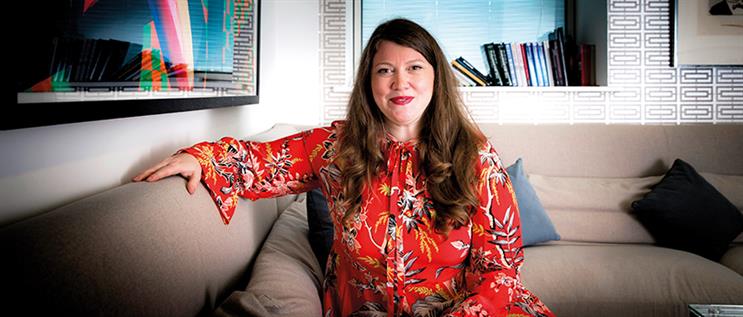In 2016, Lucie Greene cancelled Christmas. Not because she cast herself as adland’s very own Grinch – but because her commitment to getting her first book out meant she needed to hit the pause button on the outside world.
Instead of returning home to the UK for the customary family festive blowout in leafy Surrey, she travelled to Montauk, the sleepy East Hampton village best known as the ruggedly beautiful setting of The Affair. But while the backdrop and secluded cabin appeared in theory to be the perfect setting to write a book, the reality was something different.
"I found the isolation too much after a while. It does push you to the point of madness," Greene explains. She quit the cabin – which had promised the space and thinking time to write – after just two weeks. Instead, the book was fitted into holidays, spare time and every given moment. A labour not of love but of sheer gutsy determination.
For unlike many of adland’s ever-increasing roster of (predominantly male) authors, who are often "supported" by invisible or unacknowledged ghostwriters, Greene’s journey of writing her first book is one of her own making. "It’s been my hardest professional accomplishment," she declares honestly.
After a friend introduced her to a publisher, interest in her job and a desire to see an example of her writing very quickly morphed into a book deal. Initially, her deadline was a year, which ultimately ran into two.
"It was a battle of attrition to get access to people in technology but I over-researched and went hammer and tongs at speaking to people, from venture capitalists to academics," she says.
The result is Silicon States: the Power and Politics of Big Tech and What it Means for our Future – a thought-provoking tech-focused tome, filled with female voices that are often notable by their absence in the "who can shout the loudest" bubble of marketing, tech writers and self-appointed "visionary leaders" who jostle for approval on LinkedIn.
Overcoming imposter syndrome
Yet it hasn’t been an easy journey. And while it is obvious after even the shortest of conversations that Greene is the consummate expert in her field, that instinctive expertise wasn’t as obvious to her at the outset of the writing process: "I have real imposter syndrome and I’ve been subjected to a lot of techsplaining. But what I have realised is I have as much credibility and as much right to say something about what I know as anyone else."
Greene’s editor, Dan Smetanka, vice-president and executive editor of Counterpoint Press, described her initial draft as "one big New Yorker article" – perhaps not surprising as she began her career as a journalist.
But Smetanka’s support helped Greene to unleash the power of her own unfiltered voice. She says: "He was incredibly positive about the book and let me experiment. So I felt I was getting more self-confident in being more creative. I trusted in his judgement so I pushed myself more."
It was a shift that enabled her to become more outspoken in the editing process. "I developed confidence in my point of view," she explains. "It was getting that time to reflect, which is important because you see things that you would not normally see and it gives you that time to take a step back and really think about what it is you want to achieve."
Moving beyond the closed loop
The turning point in Greene’s research came when she realised she was interviewing a lot of white and predominantly baby boomer men. While talking to one such tech magazine founder, she had a striking realisation that fundamentally changed the course of her writing: "I was so sick of asking old, white guys what they thought and then having them talk over me. There is this whole churn of male-authored tech books about men in tech and I just realised I wanted to do something different."
As a result, many of the voices in her book are female – a different lens from previous works in this space. The value in Greene taking this approach is clear. The Front, founded by Thalia Mavros, former executive creative director of Vice Media, has optioned Silicon States for development.
Although her book-writing journey was often bruising, Greene urges the next generation of talent to actively "pursue influence" and push themselves forward: "Creative companies look at your social-media channels – they want you to speak on panels and be an influencer. The best creative people don’t get everything from their jobs. Giving people the space to be interesting and interested in pursuing projects outside the confines of the office is the key to hiring interesting and loyal people."
It’s an opportunity that demands both companies and individuals carve out creative spaces to pursue their passion projects.
Yet that does not necessarily mean heading to that notional cabin in the woods and pressing pause on the background noise of everyday life and ever-expanding inboxes. We can all find creativity and courage in the margins – but like most of life’s rewarding endeavours, it begins with having the courage to try.
Greene’s top tips for writing a book
1. Put together a proposal – done is better than perfect.
2. Have confidence in the value of your point of view.
3. Make time for research.
4. Be open to the editing process – refine and define your own storytelling style.



